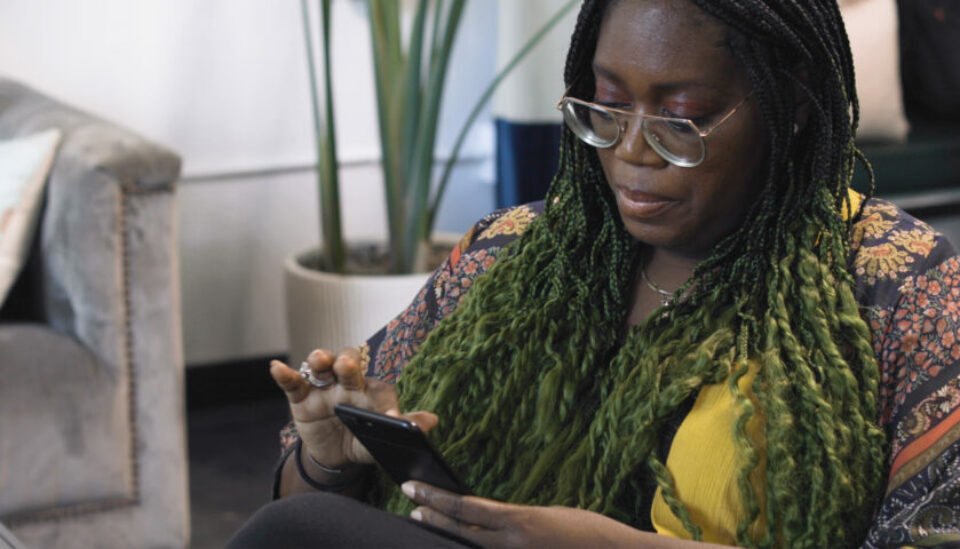
Call our advice lines
Our telephone advice lines provide vital free and confidential legal advice to women in England and Wales to help you understand the law and your legal rights.
Rights of Women is an equalities organisation and works to address the inequalities which women face in society. Providing services for women by women is core to our ethos as a specialist women’s legal rights charity.
Violence against women is discrimination as it disproportionately impacts on women and is a cause and consequence of women’s inequality. Women experience many barriers to accessing the law and their legal rights. Existing or proposed new law and legal policy often discriminates against or disadvantages women as a whole or as members of a particular group.
In our approach, we recognise the additional barriers posed by the intersection of gender-based abuse, racism, structural inequality and other forms of discrimination and oppression that impact on women’s vulnerability, exclusion and marginalisation. For example, we recognise and seek to make a contribution through our work towards ending discrimination within the law towards Black and minoritised women; migrant women including refugees and asylum-seeking women; women with disabilities; women with low socio economic status and lesbian and bisexual women; trans women and women with no recourse to public funds.
Through all our services and activities we aim to ensure that all women have equal access to the law, their legal rights and justice. In this way we aim to ensure that women enjoy a more equal role in society.
Our lawyers are all experts in the law as it applies in England and Wales. The law is very different in other countries and we do not have the necessary expertise to advise you.
We are really sorry that it is often difficult to get through to our advice lines.
Demand for our telephone advice lines is very high. The availability of our telephone advice lines is limited by our funding and sometimes by the availability of our volunteer legal advisers.
Please keep trying to get through and also look at our legal information here.
Help us to increase our capacity to advise more women by donating or fundraising for us. You can find more information here.
We have a confidentiality policy which says that all records of your call will be kept confidential. Lots of women contacting us choose to remain anonymous.
Sometimes it is not safe for us to send information to our callers after the call but when we do and we take your name and address or email this is kept confidentially and we will not use it for any other purpose. We will not use it to contact you again and we will never pass it on to any other organisations.
Our legal advisers are all solicitors and barristers who are bound by a duty of confidentiality which means that they must not disclose details of your call to anyone except in very rare circumstances, such as when they suspect a fraud has been committed or there has been a terrorist threat.
Our current funding does not enable us to prepare written advice by email or post. We are not able to undertake casework. However, you can call our telephone advice lines as many times as you need as your case progresses or your circumstances change.
We cannot make personal recommendations of solicitors but we can help you to choose a solicitor who has the expertise you need by signposting you to firms in your area who meet quality assurance standards such as the Legal Aid Agency Specialist Quality Mark or the Lexcel Practice Management standard (Lexcel), owned by the Law Society.
If you are deaf, hard of hearing, or speech impaired you may be able to contact us using an application such as the NGT Lite Text Relay app. If you are using the NGT Lite App dial 18001 followed by our advice line number. This will enable a Text Relay Assistant (TRA) to join into the call and relay the information for you to us. You can find out more information about the NGT Lite app at www.ngts.org.uk or you can email NGT at [email protected].
Although a number of our legal advisers speak languages other than English, due to the nature of our service we cannot guarantee that they will be available when you call and therefore we are only able to advise in English.
If English is not your first language and you would like support calling us for advice we are happy to talk to a friend or support worker who can translate our advice for you. However, due to the nature of our advice it will be important that you are present with them when they make the call to ensure that our adviser has all the information she needs and can answer any further questions you have about the advice.
We also offer telephone interpreting services on our advice lines. You will need to tell the adviser what language you speak and will be put on hold while we call the interpreting service.
We can provide advice to you if you are supporting a woman, for example, as a friend or relative or a professional supporting a woman. If the woman you are supporting is also with you when you make the call this helps us to ensure she receives the best possible advice. If the woman you are supporting is not with you, we can usually only provide general legal advice.
You can also find legal information which might support her here.
We have a complaints procedure. If you wish to make a complaint about our services please contact us on 020 72516575 or by email to [email protected]

Our telephone advice lines provide vital free and confidential legal advice to women in England and Wales to help you understand the law and your legal rights.

Our online legal guides and handbooks provide accessible legal information to help women in England and Wales through the law.

Here we list links and details of other organisations that can provide more information and support.